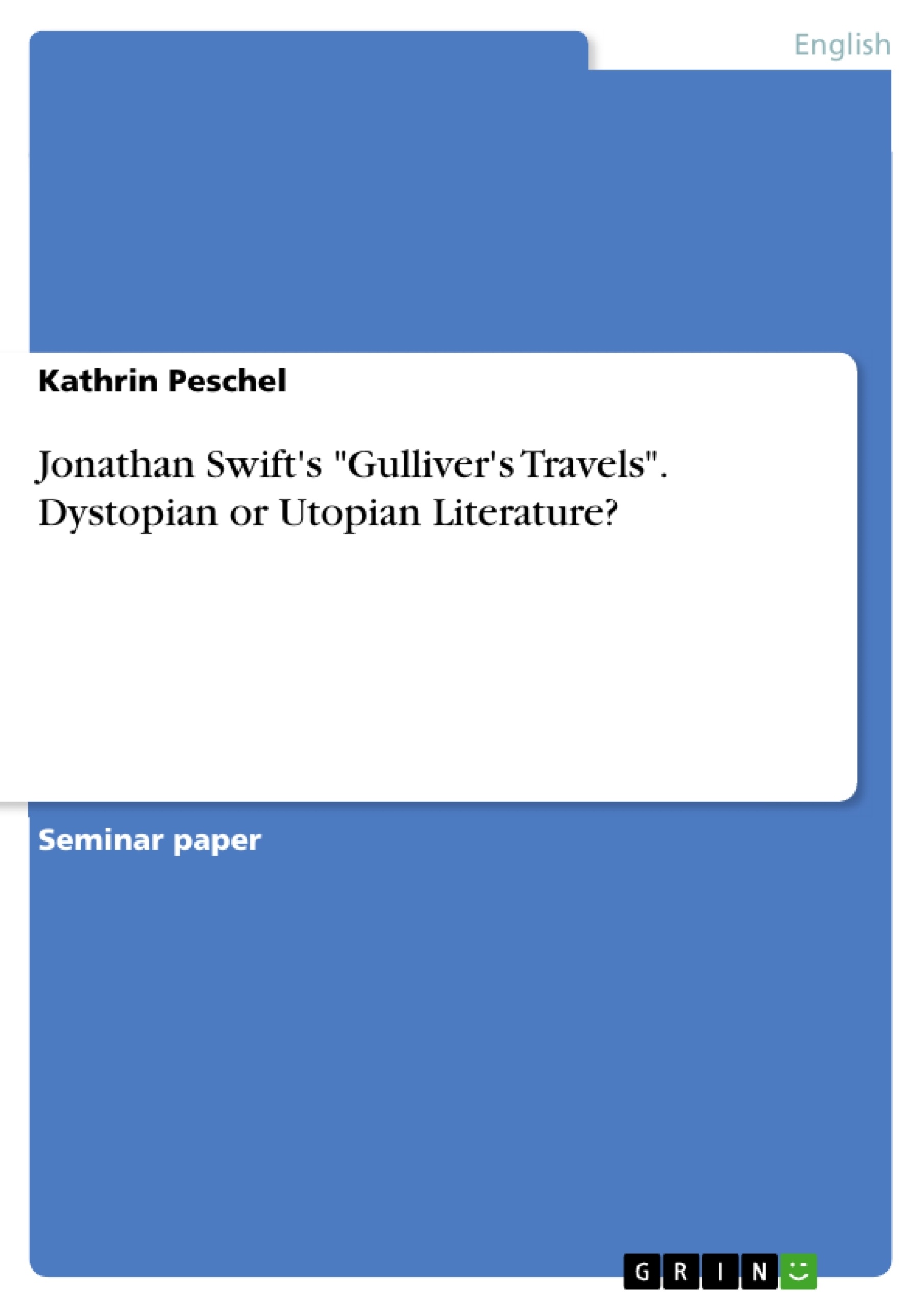When dealing with utopian literature one always comes across Thomas More who founded the neologism ‘Utopia’ in 1516. His Work De optimo rei publicae statu deque nova insula Utopia is about an island that is excluded from its surroundings and has a full self-supply. It is considered to be the pioneer of utopian literature as genre. The term ‘Utopia’ derived from Greek ou-topos and means “no place” or eu-topos “good place”. This genre generally offers an idealized state where harmony and entire satisfaction are omnipresent, which is considered to represent a counter-image of the historical reality of the author’s times. Utopia represents a moral land which can never exist in the real world. In this way utopian places reflect wishes of the authors which can never come true – or at least only years later. To name but a few are the realization of democracy and human rights, improved medical care or nature conversation.
Unlike utopias, dystopias from Greek dys- (‘bad’) tópos (‘place’) often refer to totalitarian societies and restricted personal freedom. They appeared in the 19th century and their number increased strongly during the last hundred years. Dystopias critically reflect social imbalances and the lack of essential and personal liberty.
As an example of ideal concepts of a society, the paper will discuss utopian elements in Gulliver’s Travels, which will be compared with dystopian elements that refer to worse societies with social disparities and injustices. Hence, the question whether Gulliver’s Travels is more utopian or dystopian will be answered. The first part will have a focus on the country and the Houyhnhnms. The second part will analyze the other inhabitants – the Yahoos and how they fit into the island.
Inhaltsverzeichnis (Table of Contents)
- Introduction
- The Houyhnhnms and their Land.
- The Yahoos
- Conclusion..
Zielsetzung und Themenschwerpunkte (Objectives and Key Themes)
This paper explores the utopian and dystopian elements present in Jonathan Swift's Gulliver's Travels, analyzing the contrasting societies of the Houyhnhnms and Yahoos. The paper aims to determine whether the work ultimately presents a more utopian or dystopian vision.
- Utopian elements in Gulliver's Travels, particularly the society of the Houyhnhnms.
- Dystopian elements in Gulliver's Travels, particularly the society of the Yahoos.
- The role of reason and its impact on social order.
- The limitations of utopian ideals and the potential for dystopian outcomes.
- The relationship between human nature and social structure.
Zusammenfassung der Kapitel (Chapter Summaries)
The introduction provides context for the analysis of Gulliver's Travels by defining the concepts of utopia and dystopia, tracing their historical development, and outlining the paper's objectives.
The second chapter focuses on the Houyhnhnms, their land, and their society. It examines their physical characteristics, their social structure, their values, and their relationship with reason. This chapter explores the potential for utopian ideals within the Houyhnhnm society, highlighting elements such as their harmonious coexistence, their aversion to evil, and their reliance on reason.
The third chapter analyzes the Yahoos, contrasting their physical appearance, social behavior, and values with those of the Houyhnhnms. It explores the dystopian implications of their animalistic nature, their lack of reason, and their role as slaves to the Houyhnhnms.
Schlüsselwörter (Keywords)
Utopia, dystopia, Gulliver's Travels, Houyhnhnms, Yahoos, reason, social structure, human nature, social order, harmony, evil, slavery, justice, freedom.
- Quote paper
- Kathrin Peschel (Author), 2015, Jonathan Swift's "Gulliver's Travels". Dystopian or Utopian Literature?, Munich, GRIN Verlag, https://www.grin.com/document/305220



